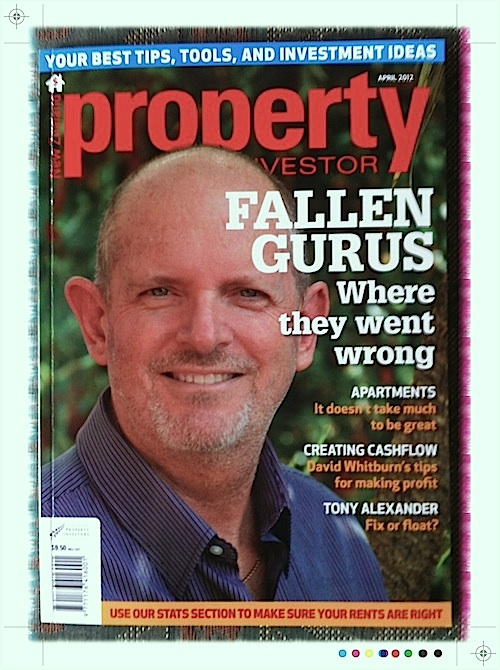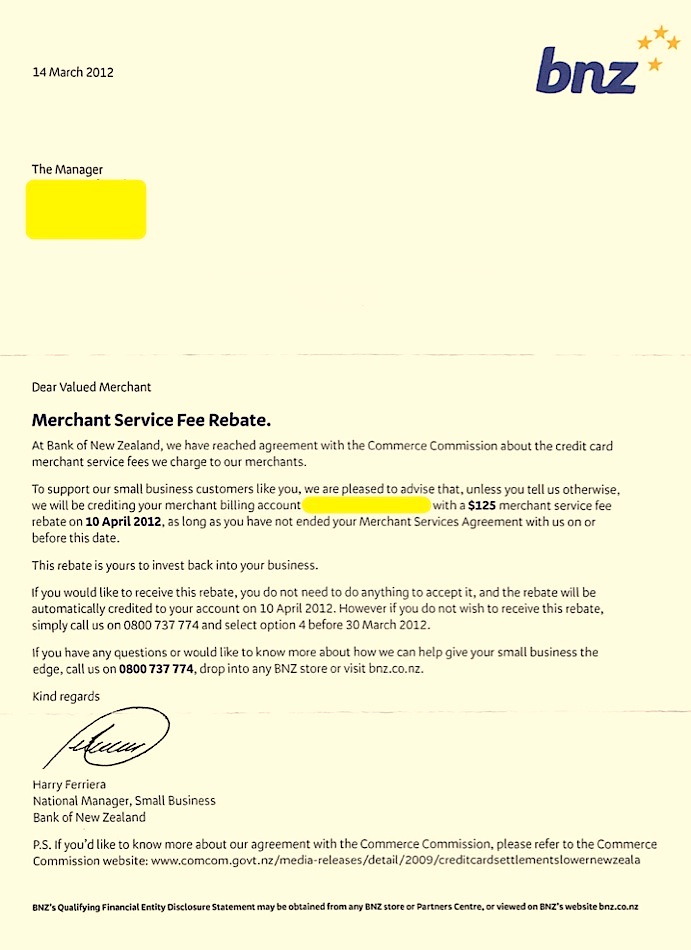Spotted this encouraging message on the way to town…
Um … OK.
– P

Getting too close to the 'product' of certain organisms can lead to infestation. It's the same in politics and the media, as the Ports of Auckland company MIGHT be learning. (pic: http://healthtips-sastha.blogspot.co.nz/)
Now that the Ports of Auckland has admitted it, I haven’t got much to add to my earlier ‘Lie down with dogs get up with fleas’ comment in ‘Garner: “@whaleoil lies again.” Surprise me‘ about the Ports company leaking their personnel records to a sympathetic (at best case) blogger.
Today’s Yesterday’s NZ Herald editorial: Port’s misuse of private files lamentable is worth a read — although it focuses solely on the Port company’s actions, and not on the advocacy-verging-on-hate-speech and odious denigration tactics used by website operator/attention-seeker Cameron Slater — whom the NZ Herald so elegantly describes as ‘a pro-company blogger’.
Yes. Cameron is very ‘pro-company’, it seems — or is he simply anti-Union? Whatever he is, it is purely as a hobby, apparently. (‘I have not accepted or received any money from Ports of Auckland, not 1 cent let alone $10,000,’ he asserted in response to scrutiny at The Standard). Or perhaps he’s acting from conviction. (Not that kind of conviction!) Or it could be like his promotion of Simon Lusk‘s discreet, behind-the-scenes political ‘campaign strategy’ services — for ‘a mate’ … d’ya think? Continue reading →
So, does all-encompassing MEDIA find an audience, or does the audience find what they ‘re interested in knowing more about? What do you think?
 From a new article ‘How to Blog’ by Rob Beschizza at Boing Boing with some good stuff to say about writing, including the ‘so yesterday’ thought that maverick bloggers were always gunna be ‘outside’ MEDIA … instead of, as I say, absorbed into the borg.
From a new article ‘How to Blog’ by Rob Beschizza at Boing Boing with some good stuff to say about writing, including the ‘so yesterday’ thought that maverick bloggers were always gunna be ‘outside’ MEDIA … instead of, as I say, absorbed into the borg.
It’s about what readers want but also, where writers see themselves going, career-wise.
SERIOUSLY, WHAT IS BLOGGING?
It’s a funny word for writing online. This question persists because getting noticed in “blogging” is widely perceived as the gateway to a career in writing and journalism. And for all its challenges, journalism is fun if you pick the right subject. It’s a cool job.
A few years ago, blogging was a new, controversial and even disreputable form. Established, credentialled, school-indebted journalists faced barbarians at the gate: barbarians in pajamas. Writers with their own websites, no boundaries, and only a fleeting interest in the trade’s ethical traditions. The readers wanted a less mediated connection to the news, something more personal than the AP style guide offered, and bloggers delivered it.
As time went by, though, the business of selling words accommodated itself to it. Journalists became bloggers, and bloggers got hired by magazines and newspapers. And here we all are. …
For me, as we discussed briefly here re Andrew Sullivan’s view of ‘Loyalty, engagement and criticism’ … the ‘ethical’ stuff (telling the truth) remains an important distinction, so it’s good to see Rob mention it.
Liars have written their lies on clay tablets, goat skins, papyrus, parchment … and WordPress, Tumblr and Twitter. Same old, same old.
Read Rob’s article How to blog at Boing Boing for an interesting viewpoint, and some stuff to consider — as he says: ‘I present to you the fourth-best article about blogging published this week.’
Nice.
– P
via Cam Slater
Update: On related thoughts, if you care, read this: It’s Time to Stop Talking About the Death of Big Media by Hamish McKenzie Pando Daily
Didn’t we evolve beyond the “Internet vs big media” dichotomy a few years ago? Isn’t it clear that “the Internet,” despite the magical quality applied to it by some denizens of the Valley, is nothing more than a network, which can be used as a channel and a platform, and that it is just as accessible to “big media” as it is to a bunch of comp-sci grads who have rented space in Palo Alto?
The idea that “the Internet” will defeat a clueless “big media” at its own game is romantic at best, naive at least, and actually, in a way, kind of cute…
Yes, the digital disruption of the media industry has been massive and real. It pried open some cracks in which some excellent excellent new media properties have been able to thrive – Slate, Salon, The Awl, just to name a few. New platforms have emerged to challenge big media’s hegemony, but as they mature and as big media catches up, those platforms – Facebook, YouTube, Twitter, Spotify – are proving fertile territory for the major media brands. CNN, for example, is one of the most followed brands on social media. Its central Twitter presence counts more than 4 million followers. The Huffington Post has 1.8 million. …

Spruiker Dean Letfus is a personable chap who used his communication skills to get people to take his advice, and buy whatever he was selling. It didn't always work out well for them. But nobody's perfect, right?
I hadn’t seen this until today — a remarkably positive article about investment ‘lessons’ spruiker Dean Letfus has learned from the collapse of his ‘property empire’ in April’s New Zealand Property Investor magazine.
A few other bankrupt investors are mentioned to leaven the loaf, but in the main it reads like an article about cover boy Dean Letfus, the former (and current) property spruiker and internet guru talking about what he did right and his ‘innate ability to negotiate’ before the wheels came off.
It quotes him in such gems as:
Letfus knows that his success could have continued unabated if the market had stayed buoyant: ‘Everything I did worked, I just did too much high-risk stuff at the beginning of an unprecedented recession.’
and some of the events and people documented on The Paepae (use the tags below if you want to know more) are also mentioned, tangentially:
“As an educator and professional investor [comment: never stop promoting, huh?] I have always taken my business very seriously,” Letfus says. “When the world started imploding I started looking for cashflow solutions outside my own skill set. I felt like I had to fix not just myself, but hundreds of clients as well. So in my enthusiasm/desperation I connected with people that I shouldn’t have and got involved in businesses I didn’t know enough about. In my case this culminated in … a business partner who took advantage of me, my clients and then vanished overseas … Huge damage was done to me and my friends, including the destruction of my New Zealand business.” (ellipses and punctuation in original — interviewed by email?)
Oh dear me. For those of who observed the methods Dean Leftus and his accomplices used operating his New Zealand businesses, selling get-rich-quick schemes like ‘Conquer Australia’, and his mate Matthew Gilligan’s subdivision sites, not to mention his local and overseas selling trips as, first a property guru, then suddenly an internet marketing expert, perhaps the cessation of those activities wasn’t a totally bad thing?
I’ve had correspondence from people who now put Dean firmly in the same category that he’s now apparently classing his former business partner Shaun Stenning: ‘I connected with people that I shouldn’t have’. Oh yes, that’s how some people feel about Dean, believe me.
If you’re interested, scope out the April 2012 issue of the magazine.
– P
Richard Nixon on “outrageous, vicious, distorted reporting” from Oct. 26, 1973 Press Conference (days after the Saturday Night Massacre)
… reminds me of something. But I can’t quite put my finger on it.
-P
Those in the news media undertaking scrutiny of the New Zealand coalition government’s unpopular* state-owned asset sales/partial privatisation (your choice) programme will, naturally, look for ‘fish hooks and broken glass’ and clauses like this … and write headlines like Vernon Small’s Loophole allows sale of over 49pc
*I say ‘unpopular’ based on opinion polls like this which shows 60% plus opposition to the proposed asset sales, although that may be falling.
One can only speculate what the effect on public opinion might be if the much-vaunted 49% ‘private ownership’ cap were to … slide … or appear to, as today’s Dominion Post front page story seems to suggest.
This sort of development can be seen as more grist to an electorate (partisan elements aside) which is being provoked, surely, to wonder if all may not be quite as it seems with their current crop of politicians.
On this issue, so far we’ve had the Finance Minister admit to a ‘guess’ of proceeds of sale, the ‘We’ll put it into schools and hospitals’ justification, we’ve had the hurriedly painted-back-in Treaty of Waitangi SOE clauses, the PM’s ‘Trust me’ response to questions about limiting ownership to Kiwi mum and dad investors, and the 10% cap on ownership … now today’s ‘loopholes’ story on the front page of the capital’s newspaper.
At what point does National’s partial privatisation policy stand naked and exposed as ideologically-driven — a lurch to the right … as opposed to centrist, mainstream, sensible-fiscal-management-by-blokes-you-wouldn’t-mind-having-a-beer-with’?
Any day now?
-P
Following our protracted discussion on conservatism and liberalism (for want of better labels)— and differing levels of willingness by adherents to validate the values of ‘The Other’ … by coincidence, here’s William F Buckley on what Andrew Sullivan calls ‘the Danger of Political Dogma’. From a brilliant article What William F. Buckley Would Think of Today’s GOP…
In his later years, Buckley believed that the Republican failures in Iraq stemmed from a … tendency to engage in ideological wishful thinking instead of hard analysis. He also cautioned against the tendency of conservatives to transform the cautious insights of supply-side economics, for example, into theological certainties, and to move toward ever more narrow and rigid definitions of doctrinal acceptability.
Fanaticism and obsession, he believed, ultimately represented a surrender of individual freedom. As the high priest of the conservative movement, Buckley had latitude to advance unorthodox proposals such as the legalization of marijuana without being condemned for apostasy, but he also sought similar indulgence for other conservative thinkers.
Above all, Buckley wanted conservatism to be a responsible and effective governing philosophy. He recognized that a movement that delegitimizes its opponents as Communists and traitors is doomed to be irresponsible and ineffective. He warned against conservative triumphalism and refusal to compromise. He had been mentored by Whittaker Chambers on the need to balance the ideal with the practical, and to strive for conservative advances that inevitably would fall short of utopia. To live, Buckley reminded conservatives, is to maneuver.
I recently saw someone refer to the ‘Dead Marxists’ game, where an historical figure’s ideology and philosophy are revised and either lauded or condemned (usually with extra cheese).
It’s easy to fall into the trap of lining up our historical ducks in a row to ‘support’ whatever POV one has of the historical figure. ‘Confirmation bias’ afflicts us all, making it difficult if not impossible to elude ‘what you see depends on where you stand’.
This is assuming we’re not talking about deliberate propaganda like Oliver Stone’s JFK, which poormastery referred to recently in our discussion about Watergate/Nixon.
Then there’s this (which I don’t subscribe to);
“History is bunk”
“History is more or less bunk. It’s tradition. We don’t want tradition. We want to live in the present and the only history that is worth a tinker’s dam is the history we made today.”
— Henry Ford, Interview in Chicago Tribune, May 25th, 1916
US automobile industrialist (1863 – 1947)
Personally, I’m intuitively more with;
Those who cannot remember the past are doomed to repeat it. – George Santayana
… but interpretation can be everything including the ‘What’s it all about Alfie?’ question.
I’ve tried to learn from history, but what it often teaches is that — at best — the decision makers are imperfect people working with imperfect information. Do they know their history? Well in Winston Churchill’s case, yes, in John F Kennedy’s case, yes. Two perfect examples of imperfect people.
A lot of history is the battle of ideology and resisting the trap of dogma that Buckley describes.
Some of us are looking for a way through — perhaps a way to co-operate … Jon Stewart’s Rally image of traffic merging like a zip – “You go, then I’ll go” resonated with me.
I am willing to acknowledge other people have values that don’t necessarily align with mine, and, like so-called ‘consensual crimes’ where there’s no victim, that’s a matter of ‘ain’t nobody’s business if they do’.
I know others don’t see it that way. Especially some good friends who see society disintegrating or spiritual warfare or ‘a battle of principalities and powers’ being waged and ‘moral standards’ as the battlefield. I don’t despise that point of view, it’s legitimate. But seeking to dominate and persecute or oppress someone else or a class of people because of dogma — religious, political, racial, sexual — seems to me to be futile, wrong and dangerous.
That’s what history teaches me.
– P
Update: What can be conceived of as Buckley’s yardstick (‘Does this reduce individual freedom?’) is very useful.
Worth a read: this brief article by Dan Zak at The Washington Post Woodward and Bernstein: Could the Web generation uncover a Watergate-type scandal? discussing how a ubiquitous internet has so seized the world-view of even bright people that they think journalistic ‘sleuthing’ can be done online and that no corrupt power can but kneel before the web.
“The truth of what goes on is not on the Internet. [The Internet] can supplement. It can help advance. But the truth resides with people. Human sources.”
Human sources — indeed. And, as the Watergate scandal and revelations about ‘Deep Throat’ Mark Felt proved, those human sources can have their own agenda too.
Dan Zak’s article is drenched in, if not contempt, what sounds like generation-gap-esque disdain for the “gabby, gray-haired grand pooh-bahs of journalism” but he makes a good point:
If Watergate happened today, it would probably involve a hacking, not a burglary.
He’s right about that. Or a LEAK.
Consider Manning/Assange/Wikileaks — today’s version of Daniel Elsberg and associated news publishers of the time. Same formula, different scale and methodology.
The power of the web and ease of ‘data’ copying and transmission are two-edged swords in the hands of the reporters and the reported … and whistle-blowers.
Lamenting the budget-constrained loss of investigative reporting doesn’t change the fact that ‘stories’ have always been about people, and power, and how they interact. From Plutarch to Pilger.
Our ‘connected world’ and the fact that anyone can call up your credit-rating, criminal history, satellite pictures of your home, etc hasn’t changed that.
– P
‘Spin’ (bending reality), is not a phenomenon just confined to politics.
At the risk of being accused of ‘looking a gift horse in the mouth’, here’s a fine example:
Yesterday I saw this letter which looks like a kind gesture from the BNZ — telling ‘small business owners’ who are credit card merchants about the bank’s ‘support’ for them, and sharing news of a $125 ‘rebate’ …

Wow, THANKS BNZ for giving us back some of the money you gouged from us when forced to by High Court action.
Best line: ‘This rebate is yours to invest back into your business.’
Translation: ‘Because it was your money that we over-charged you in the first place.’
‘Rebate’, BNZ? Riiiight. But, funny, when I read the October 2009 detail of the ‘agreement’ the BNZ has reached with the Commerce Commission referred to in the postscript, I see it was the result of High Court action against financial institutions … which seven settled: ANZ National, ASB, Westpac New Zealand Ltd, Bank of New Zealand, Kiwibank/New Zealand Post, TSB Bank, and The Warehouse Financial Services Limited.
The Commission claimed in High Court proceedings that the parties breached the Commerce Act by agreeing and implementing the Visa and MasterCard credit card scheme rules in New Zealand which, among other things, provided for the payment of multilateral interchange fees. The Commission alleged that these rules substantially lessened competition by artificially inflating the cost to retailers of accepting credit cards and ultimately raising prices paid by all consumers.
Relevant sections of the Commerce Act. The proceedings are brought under sections 27 and 30 of the Commerce Act 1986. Section 27 prohibits contracts, arrangements or understandings that substantially lessen competition. Section 30 prohibits price fixing, which is when people or businesses that are in competition with each other agree to control, fix or maintain the prices for the goods or services that they supply. Price fixing is deemed to substantially lessen competition under section 27 of the Commerce Act.
Thanks for the support BNZ.
– P
| The Daily Show with Jon Stewart | Mon – Thurs 11p / 10c | |||
| Good Morning Real America | ||||
|
||||
“Oooh, [Sarah Palin is] ‘infiltrating’ the Today Show. I think it means [Palin] is cynically exploiting a manufactured notion of herself as a crusader against a monolithic, exclusionary, activist liberal media, whilst actually enjoying a mutually beneficial, symbiotic relationship with them, only to the detriment to the rest of the country.” — Jon Stewart
Important points about patriotism not being exclusively a ‘conservative’ trait — “Patriots who understand the constitution”, in her terms. That’s classic denigration of ‘The Other’. (And we all do that.)
– P
Following my own recent humble stumblings in time-lapse photography, here …
Via Jason Kottke, this stitched together time-lapse panorama of the scene outside the window of Hitchcock’s classic film is, apparently, accurate. Wow.
Follow the link on Jason’s site to the ‘how this was made’ page. Extraordinary.
-P
Herald on Sunday journo Jonathan Milne’s narrative of how the ‘cup of tea’ media stunt got recorded and the actions following is a must-read (if you care).
See: Findings not quite Key’s cup of tea (NZ Herald)
Read it. Seriously. (Ignore the 1 April dateline.)
In the same paper, I noted that broadcaster Mike Hosking was quoted declining comment – about controversy regarding his Sky City Casinos contract and payments – to the Herald on Sunday in these terms:
Hosking is still refusing to discuss his close links to the casino, revealed in last week’s Herald on Sunday.
This week he said it was a “non-story” and he wouldn’t be commenting on it as the newspaper’s staff were “pond scum” and “reprobates“.
I know others, including former colleagues of mine, who hold equally unflattering opinions of the HoS — based on their personal experience of the at times, let’s face it, pretty seedy celebrity-hounding, privacy-stretching culture of the paper. (We discussed that here, in relation to the news media stalking people through Facebook, remember?)
But I recommend you read Jonathan Milne’s (NB: not Jonathan Marshall) article for yourself — and see what you think of their actions.
– P
I had not seen this image before. A little piece of political history.
via Reg Braithwaite (It seems genuine.)
See my quote of Hunter S Thompson’s Nixon obit in this post: Gonzo
– P
Andrew Sullivan is a writer I respect. And that’s for a lot of reasons, whether I agree with everything he says or not.
Elements of his ‘The Daily Dish‘ blog have been widely copied by the less imaginative* (Mental Health Break, Face of the Day, Quote of the Day, Tweet of the Week, blog ‘awards’) along with countless of his posts, videos, links, insights, smack-downs, and wry laffs — with or without acknowledgement, ‘hat tips’, or squiggly unicode curation symbols ᔥ ↬ etc.
Sullivan — a magazine editor and columnist (bio on wikipedia) — is influential. His is an Internet success story based on a background in ‘old media’ (boo hiss [/s]), talent, dedication and focus. I enjoy him a lot. I appreciate him acknowledging his POV, being ‘man enough’ to acknowledge his loud, partisan support for Bush’s invasion of Iraq was a mistake based on fear.
Besides POV, I enjoy Sullivan having an attention span. Does he run crusades? Oh yes, at times. And his contempt for some of his targets is palpable, but he’s not a liar. And that’s a very important distinction in these times of ‘culture war’.
Sullivan is also a classic example of what I mean when I say MEDIA will absorb all ‘new media’ and make it part of the borg … just as Art swallows up the Romantics, the New Romantics, the modern era, the post-modern era etc ad infinitum. (‘Resistance is futile.’)
Sullivan is doing well, apparently, with a regular audience of millions, including my ‘umble self, usually by RSS (and recently Flipboard on my iPad). I think his popularity and RESPECT is partly because unlike some of his spittle-flecked imitators, it seems to me he is open to genuine discussion and criticism, rather than building a partisan echo-chamber and abusively swearing at non-believers. Look:
Home News
It’s now been a year at the Beast and I’m happy to note that our traffic this past year reached 91 million page views, up around 26 percent over our last year at the Atlantic, and our monthly readership of around 1.1 million individual people across the planet is as solid as ever.
Thanks as always for your loyalty, engagement and criticism.
Congratulations to him. Way to go.
– P
* ‘There is nothing new under the sun’ (Ecclesiastes 1:9) and ‘Great artists steal’ (Picasso? Steve Jobs) apply, natch.
PS I cop criticism here and elsewhere from time to time (even in the last few days) from commenters who (quite rightly) dispute my POV or raise an argument against something I’ve said, or how I said it, or my selective focus. That’s fair enough. Have at it. Let’s discuss it.
As I said with respect to my experience at PropertyTalk:
A discussion forum is a democracy. Posters stand or fall on the quality of their information and their expression of ideas. No-one is ‘owed’ respect. I have my detractors. So does anyone who posts.
If I publish or say something ridiculous or patently false, I should anticipate ridicule and my false information to be pointed out.
Go ahead, criticise. Make a case, be as ‘negative’ as you like — best leave character attacks and hallucinations about ‘motivations’ out of it — just the facts, as strongly as you like and present the evidence to illustrate or support your point of view.